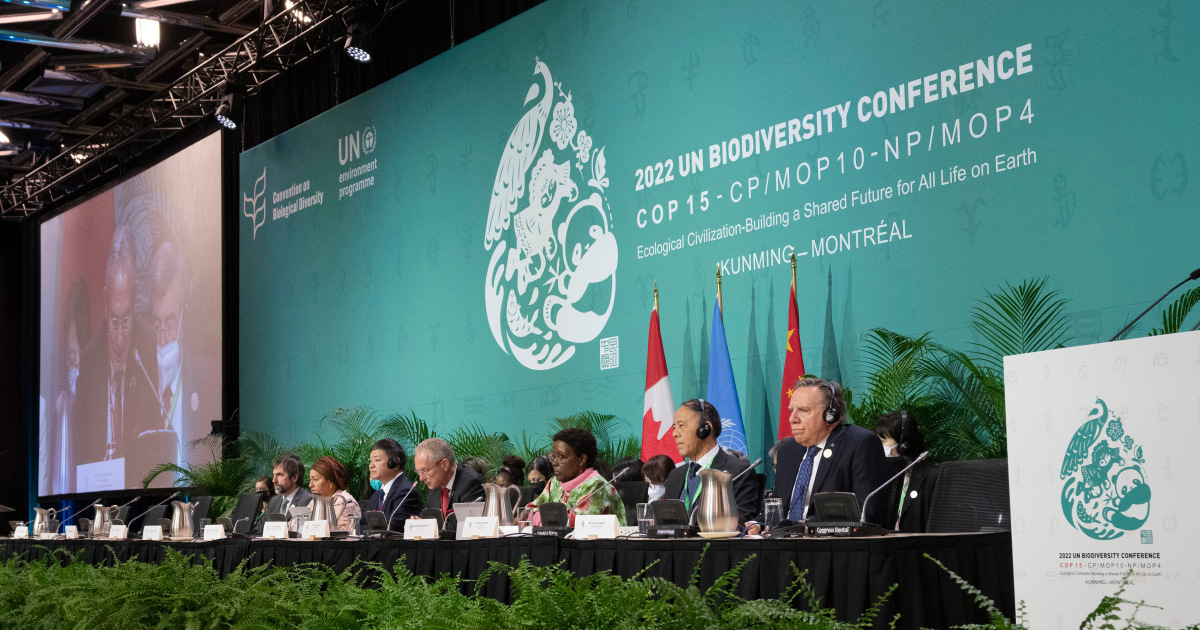By Michael Casey -
The Associated Press
Negotiators at the United Nations conference on biodiversity reached a historic agreement Monday in the most significant effort to date to protect the planet and oceans, and provide vital funding to ensure the survival of plants and animals in countries Developing.
This global framework was agreed the day before the end of the United Nations Conference on Biodiversity (COP15), in Montreal (Canada).
China, which holds the presidency of the summit, published a draft earlier in the day that gave the necessary impetus to talks that at times turned heated.
The most significant part of the agreement was a commitment to protect 30% of land and water considered important for biodiversity by 2030. Right now 17% of land and 10% of marine areas are protected.
COP15 in Montreal, Canada, on December 15, 2022. Ryan Remiorz / AP
“There has never been global conservation on this scale,” said Brian O'Donnell, director of the conservation group Campaign for Nature, “this gives us a chance to prevent the collapse of biodiversity.” “We are now on the scale that scientists they believe it can make a difference in biodiversity,” he added.
The text commits to raise 200,000 million dollars from different sources by 2030 in funds for biodiversity, and work on the phase out or reform of some subsidies for fuels and food that could provide another 500,000 million dollars in funds to prop up nature. .
As part of the financing item, the agreement contemplates increasing the money that goes to poor countries by at least 20 billion dollars annually by 2025, around double the current amount.
That number rises to $30 billion a year by 2030.
Planet Earth: Within two years the reservoirs of the Colorado River could stop being useful
Dec 18, 202202:02
Some activists have called for tougher language on fuel and food subsidies in many parts of the world.
The document only asks to identify subsidies by 2025 that can be reformed or withdrawn and work to reduce them by 2030.
“There are things that are good about the new text and things that can be improved,” said Andrew Deutz, director of global policy, institutions and conservation finance for The Nature Conservancy.
“It contains some strong indications on finance and biodiversity, but it fails to move beyond the targets of 10 years ago in terms of addressing the sources of biodiversity loss in productive sectors such as agriculture, fisheries and infrastructure and is therefore still in progress. risk that is truly transformative,” he added.

